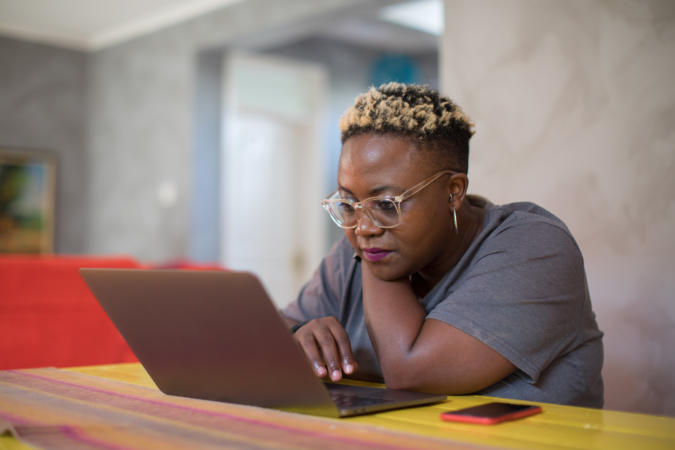When it comes to the tech industry, Black women still deal with a lot of unique barriers. According to Project Diane, Black women-led startups have only received a total of .0006% of the $424.7 billion in total tech venture funding raised since 2009. This percentage is alarming considering Black women are doing great work in tech and have unique value to bring to the market through their ideas and products.
Ever resilient and resourceful, however, Black women have begun taking matters into their own hands and are starting companies regardless of adequate funding. In fact, the amount of Black-women led startups has more than doubled since 2016.
These seven Black-women led startups display the diversity of ideas we bring to the table.
Ethel’s Club
Coworking spaces have seen a recent spike in popularity. In her Brooklyn neighborhood, Naj Austin realized there was a glaring gap and opportunity to capitalize.
“What’s missing generally in the landscape [of coworking spaces] is there isn’t a place that centers specifically on POC identity,” Austin told AfroTech. “I actually just left a WeWork and I was the only person of color there that I saw when I walked through it.”
Determined to address the lack of diversity, Austin developed Ethel’s Club — a social club for people of color. Austin named Ethel’s Cub after her grandmother so the company could stand on a legacy of “community and togetherness.”
Healthy Roots
For many Black women, playing with dolls growing up meant that you wouldn’t have a toy that looked like you. The lack of representation can negatively impact how little Black girls see themselves.
With that in mind, Yelitsa Jean-Charles decided to start Healthy Roots. The toy company develops dolls and storybooks to help empower children to love themselves the way they are.
Planet FWD
If you think you’ve heard the name Julia Collins before, you’re probably right. That’s because she’s the founder of Zume Pizza, an automated company that uses robots to make pizza.
Now, Collins has embarked on another venture with her new startup, Planet FWD. It’s a company that focuses on using regenerative supply chain as a way to tackle global warming.
“As we draw down greenhouse gasses, we reset the health of the planet,” Collins explained to AfroTech. “Regenerative organic agriculture is like turning back the hands of time and delivering our children a healthier planet.”
Human Utility
Water is essential to life, but communities of color are often denied access to it. Cities like Detroit have often come under fire by activists for its policy around shutting off people’s water.
After seeing what was happening, Tiffany Bell started the Human Utility. The project connects people with overdue water bills to donors who are willing to help them clear their accounts.
Originally, Bell’s project started with a focus on Detroit but has since expanded to Baltimore and other areas.
CapWay
Being unbanked or underbanked is an issue that disproportionately impacts Black households. It’s an issue that Sheena Allen knew personally since her grandmother relied on check-cashing centers.
Motivated to find a technological solution, Allen founded CapWay, a company that aims to make banking fair for everyone. To Allen, CapWay isn’t a “finance first platform,” but it is a “social platform first.”
“With CapWay our users are connected to a platform that understands their needs. We take a very holistic approach. We’re giving you information about money, but we also give you the tools to put that money to use,” Allen told AfroTech.
Real Raw Shea
Shea butter is a popular choice for a moisturizer but, unfortunately, many of the women who make it are exploited or abused.
Aisha Suraz founded Real Raw Shea to help combat some of the abuse going on. The company focuses on sustainability, which includes giving back to the women who make the product.
Since launching, RRS has invested $10,000 back into the communities that they work with. The company has also helped women in Ghana establish an official cooperative and more.
“This is all about the women,” Suraz told AfroTech. “Without them, Real Raw Shea does not exist.”
Goodr
Anyone who has worked in food services knows just how much gets thrown away at the end of the day. The food that is thrown away could feed families across the nation. Therefore, Jasmine Crowe looked towards blockchain technology for a solution.
The founder then started Goodr — a company that she describes as a reverse UberEats. Essentially, the company manages food waste and lets restaurants donate to those who are in need.
















